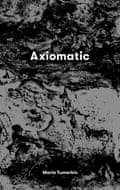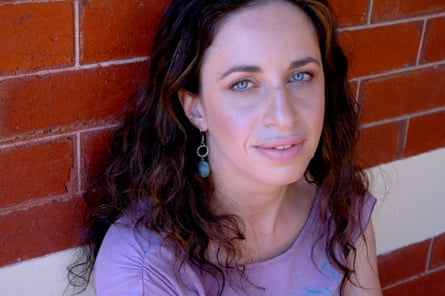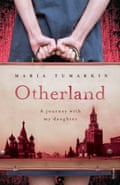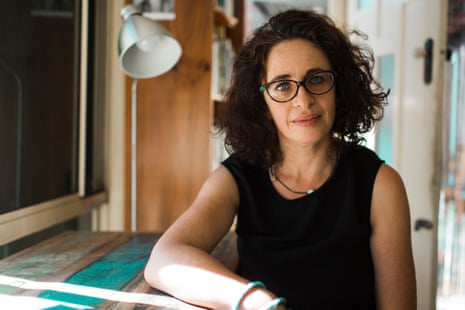Maria Tumarkin learned she was one of eight writers around the world to win the world’s richest literary prize, the US$165,000-per head Yale-administered Windham Campbell, on the same day the World Health Organisation declared the novel coronavirus a pandemic.
For those familiar with her work, the devastating synchronicity of these two events is unsurprising. The writer and cultural historian’s atmospheric, unclassifiable non-fiction blends commentary, reportage and memoir, traversing the difficult grounds of trauma, grief, friendship, memory and war. Her body of work demonstrates an exceptional ethical rigour and profound empathy – qualities of great literature necessary for a world in crisis.
With her 2005 debut nonfiction book Traumascapes, Tumarkin quickly established herself as one of Australia’s most inventive writers, challenging readers to consider sites of tragedy in a way that is at once academic and deeply personal. Her follow-up, Courage, confirmed Tumarkin’s interest in the messiness of human morality, while in Otherland, she and her daughter return to her family’s native country to explore the political and cultural impacts of conflict across generations.
For judges of the Windham Campbell, Tumarkin’s “inventive writing on our current historical moment shows a relentless empathy and curiosity about the complexities of our world and its uncertainties”.
Born in Ukraine, Tumarkin has lived in Australia for over 30 years, but she now realises that most Australians, unaccustomed to the scale of the Covid-19 crisis, have been living in a bubble.
“I come from a place where you know and expect the firm ground under your feet to be just a moment, that everything solid melts to air,” she tells Guardian Australia, describing the “radical impermanence” of disaster. “It’s just in me somewhere, it’s deeply buried somewhere in my bones. After a pretty blessed period of time in Australia, that knowledge is still there.”
Her latest and critically acclaimed book of essays, Axiomatic, explores ideas about pain and trauma that are believed to be self-evident, such as “time heals all wounds”. Tumarkin undoes those ideas with writing that Helen Garner described as “fired by raging grief and love”.

A sense of grace is always present in Tumarkin, even when incensed. “I am angry,” she says about the lack of leadership in our present crisis. “In terms of our government the vacuum is really profound. It’s a political vacuum, but it’s also a media vacuum because of AAP [Australian Associated Press, the Australian newswire service] closing … There is a sense we don’t have any media left who we need more than ever to be comprehensively covering this, and we don’t have any political leadership.”
As we talk, countries around the world are locking down in response to Covid-19, while Australians sit on a knife edge, surrounded by confusing information, awaiting further instruction. Tumarkin feels this tension acutely.
“I am Jewish so the idea of ‘waiting for orders’ is pure poison for me, I absolutely cannot abide it,” she says. “I think there are many people in this country who carry different histories in them, first and foremost First Nations people. They will not look to the institutions to lead or to protect or make wise decisions.”
It is these people to whom Tumarkin turns for leadership. “[They] are operating out of completely different principles: principles of responsibility, care and reciprocity. Those are the principles of any self-sustaining community that has a chance to survive and forge,” she says.

As the Australian arts community bands together to urge the federal government for a stimulus package, the widespread economic devastation of the pandemic only compounds Tumarkin’s ambivalence towards her good fortune.
“I am just ecstatically grateful, but it feels like a complicated gift,” Tumarkin says. “How many writers do I know who are not writing the books that they were put on this earth to write because they have to survive [by] doing other things?”
The aim of the Windham Campbell prize is to “call attention to literary achievement and provide writers with the opportunity to focus on their work independent of financial concerns”. The need is great; the average Australian author’s income is a mere $12,900, and literature receives the least government funding of all art forms in Australia, despite an overwhelming 95% of us reading books for pleasure or interest.

“The precarity that has already defined so many writers’ lives has been doubled, tripled, quadrupled by the pandemic,” Tumarkin says.
And yet, storytelling is fundamental to how we cope with crises. Tumarkin explains that rather blocking out painful events from our minds, turning to literature can help us make sense of the unimaginable by arranging traumatic events into a narrative we can understand.
“The human capacity for erasing the most acutely unpalatable recent experience and normalising things – that capacity is so huge,” she says. “We want to reintegrate everything that happened, re-narrativise and make it palatable. That is a very strong force.”
Tumarkin is excited about the renaissance of non-fiction over the last decade. “Flourishing is what’s happening,” she says. “There are such interesting, unpredictable trajectories that so many [non-fiction] books take.”
Her own work continues to evolve and adapt to the rapidly changing reality.
“I’m a different writer about trauma than say, 10 years ago, or before Axiomatic,” she says. “For a while trauma was a destination for me as a writer. Maybe I have arrived at a comfortable place with trauma and I need to push past it. I’m trying to push my writing and my thinking to other modes to give understanding to human life and lived experience.”
